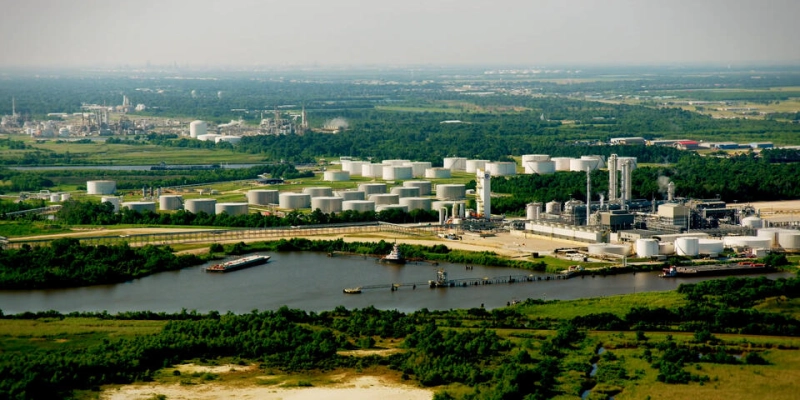Delta Air Lines Achieves First Major Sustainable Fuel Delivery at PDX
The aviation industry is witnessing a significant step forward as Delta Air Lines, in collaboration with Shell and the Port of Portland, successfully completed the first commercial-scale delivery of Sustainable Aviation Fuel (SAF) at Portland International Airport (PDX). Over 400,000 gallons of blended SAF were introduced into the airport’s fuel system, signaling a move toward greener, more sustainable flying practices.
Understanding the Delivery Process
This SAF, produced domestically from waste-derived feedstock, was supplied by Shell in its pure form and then blended with conventional jet fuel at Zenith Terminal in Portland to comply with regulatory standards. The blended fuel reached the airport via barge, truck, and pipeline, entering the privately owned fuel supply system earlier this month.
Delta’s Strategy and Broader Efforts
This milestone forms part of Delta’s expansive efforts to boost the presence of sustainable fuel options at airports across the country. The airline has previously delivered SAF to other key hubs like Minneapolis-St. Paul International Airport and Detroit Metropolitan Airport.
What is Sustainable Aviation Fuel?
Sustainable Aviation Fuel represents an eco-friendly alternative to traditional jet fuel. Derived from renewable resources, SAF can lower lifecycle carbon emissions by over 80% compared to fossil fuels. However, production remains in the early phases of development, making availability limited and costs comparatively high. Current global production barely meets even a fraction of airlines’ fuel requirements.
Challenges and Opportunities in SAF Growth
Despite its promise, SAF technology must overcome hurdles related to scale and price. Delta is actively partnering with federal and local entities to build supportive market infrastructure and advocates for governmental incentives to promote SAF production, including tax credits such as the 40B SAF Blenders Tax Credit and the 45Z Clean Fuel Production Credit, extended through 2029.
Historical Perspective on Sustainable Aviation Fuel
The move towards SAF is part of a growing trend in aviation to reduce carbon footprints. For years, various airlines globally have experimented with biofuels made from sources like algae, jatropha plants, and waste cooking oil. These initiatives aim to integrate fuels that don’t compromise food resources or biodiversity, reflecting careful attention to sustainability in transportation.
Airlines including Qantas, Air New Zealand, and Singapore Airlines have contributed to advancing SAF development, particularly through groups like the Sustainable Aviation Fuel Users Group (SAFUG), which seeks to promote adoption without extensive modifications to aircraft engines or existing fuel delivery systems—a practical approach to keeping costs manageable.
Implications for International Tourism and Travel
As international travel expands, the aviation sector’s environmental impact grows increasingly visible. Integrating SAF into mainstream operations across airports like Portland signals a shift that could reshape air travel’s sustainability profile globally. For travelers and destinations alike, this means the future might hold greener flights, fostering more responsible tourism practices amid rising demand for exotic and remote locales.
Key Benefits of SAF in Aviation
- Significant reduction in carbon emissions
- Use of waste and renewable biomass materials
- Compatibility with existing aircraft and infrastructure
- Potential to stabilize fuel costs with supportive policies
| Sustainable Fuel Aspect | Details |
|---|---|
| Source | US-produced waste-derived feedstock, algae, jatropha plants |
| Emission Reduction | Over 80% lifecycle carbon emissions reduction compared to traditional jet fuel |
| Distribution | Blended with conventional fuel, transported by barge, truck, and pipeline |
| Regulatory Support | Tax credits like 40B SAF Blenders and 45Z Clean Fuel Production Credit |
Delta’s Role in Portland and Beyond
In Oregon, Delta supports nonstop flights connecting Portland to all its major hubs, backed by a local workforce of approximately 4,500 employees. This SAF initiative at PDX shows not only the feasibility of sustainable practices at regional airports but also reflects greater corporate responsibility within aviation.
Závěr
The successful delivery of Sustainable Aviation Fuel at Portland International Airport marks a pioneering achievement in the aviation sector’s pursuit of sustainability. While challenges remain in scaling SAF production and reducing costs, such milestones pave the way toward cleaner skies and more eco-conscious global travel.
For travelers, boaters, and yacht enthusiasts drawn to destinations where clear waters and vibrant marinas offer unforgettable experiences, sustainable aviation complements a broader lifestyle of environmental care. Services like GetBoat.com provide access to yacht charters, sailing adventures, and boating activities, allowing for an exciting and responsible connection to the world’s oceans, lakes, and gulfs. As the aviation industry advances toward reducing its carbon footprint, the intersection of sustainable travel and marine leisure activities underscores a promising future for eco-friendly tourism.

 Delta Air Lines Marks First Commercial-Scale SAF Delivery at Portland International Airport">
Delta Air Lines Marks First Commercial-Scale SAF Delivery at Portland International Airport">
